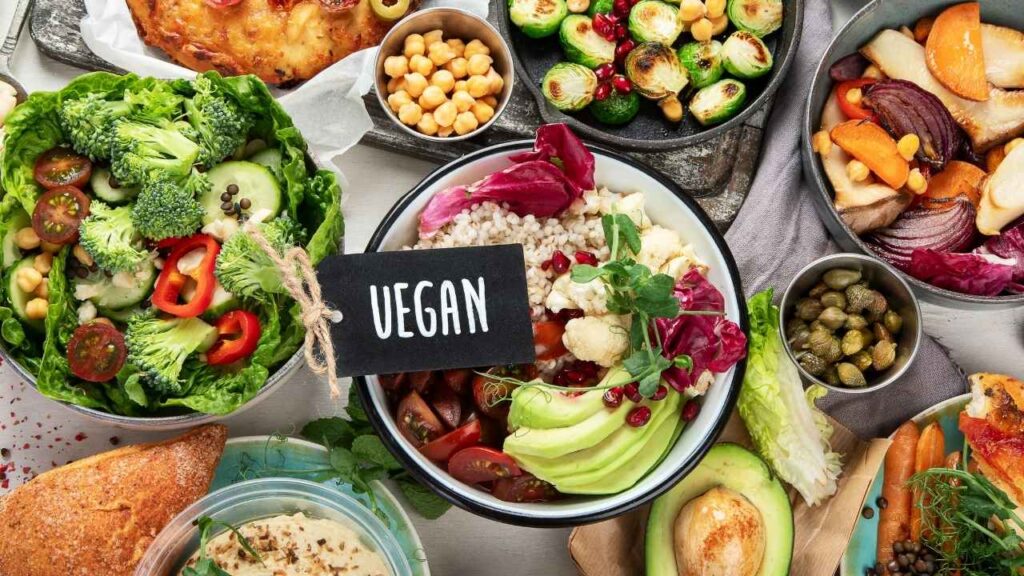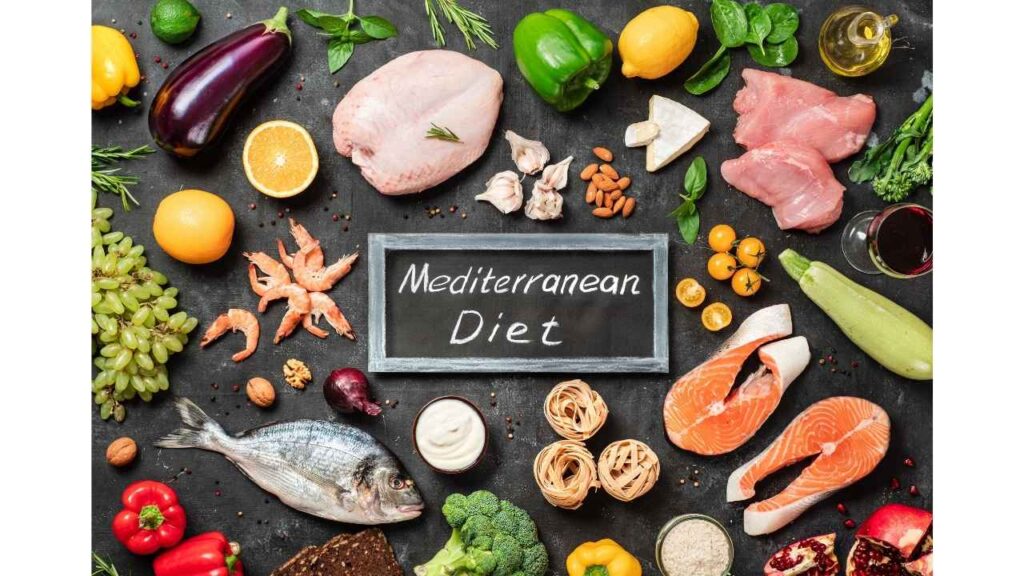Vegetarian diets can reduce land use, water consumption & greenhouse gas emissions.
Hey everyone, This is Bibek – Let’s talk about food, A topic near and dear to most of us. But beyond the deliciousness factor, what we choose to eat has a real impact on the world around us. Today, we’re diving into the world of vegetarian diets and exploring how they can benefit both your health and the planet.

Have you ever come across the phrase, “you are what you eat”? This saying actually holds a significant amount of truth. The food we decide to consume not only provides energy for our bodies but also has an impact on the environment. This is where the concept of vegetarianism comes into play. Vegetarianism is a dietary choice that emphasizes plant-based foods such as fruits, vegetables, whole grains, legumes, nuts, and seeds, while reducing or completely eliminating the consumption of meat, poultry, and seafood.
Hot Topics
Environmental Impact Caused By Animal Agriculture
Just think about it: when you decide to start a family, you need to consider the resources required to support everyone. Well, raising animals for food is quite similar, but on a much grander scale! Let me illustrate how this can have a negative impact on the environment.

Land Munchers
It’s common knowledge that animals require ample space to freely wander or graze. However, it’s worth considering that the vast expanses of land dedicated to accommodating animals could instead be utilized for cultivating crops to feed humans or safeguarding the habitats of wild animals and forests. By repurposing this land, we could address the needs of both animals and humans while also preserving the natural environment.
Thirsty Business
Taking care of animals involves using a significant quantity of water, which is needed for their hydration, cultivating the crops they eat, and maintaining cleanliness in their surroundings. This reliance on water can become problematic in regions where water is already limited, adding pressure on this valuable resource.
The Power of Veg Diet – Less Land, Less Water, Less Carbon Emission
Have you ever wondered why there is so much talk about vegetarianism lately? Well, let me break it down for you. The truth is, the process of raising animals for food demands a considerable amount of land, water, and resources. It’s not just a small impact either; studies have revealed that adopting a vegetarian diet can actually bring about a remarkable change in the environment.
LAND USE
In a study published in the journal “Science” in 2006, it was discovered that vegetarian diets have a significant advantage over meat-based diets when it comes to land usage. The study revealed that vegetarian diets require 50% less land compared to their meat-based counterparts.

This is quite remarkable when you consider the vast amount of land that is currently being used for grazing animals or growing crops to feed them. Just imagine the possibilities if we were to redirect this land towards sustainable agriculture, reforestation, or even preserving natural habitats. It could have a profound impact on our environment and help create a more sustainable future for generations to come.
WATER CONSERVATION
Animal farming uses a lot of water, as stated by the United Nations Food and Agriculture Organization (FAO), with 70% of the world’s freshwater being consumed by animal agriculture. This is a significant amount, especially when we think about the increasing issue of water scarcity in various regions.

Choosing to follow a vegetarian diet can make a big difference in saving this valuable resource. By not consuming animal products, you are indirectly contributing to the conservation of water. It’s a simple yet impactful way to help address the global water crisis.
GREENHOUSE GAS EMISSION
Raising animals for food is a big reason why greenhouse gases are released into the atmosphere, and these gases are a main cause of climate change. According to a study published in the PNAS journal in 2018, if more people chose to follow a vegetarian diet, it could make a big difference in reducing the amount of greenhouse gases produced from food production. So, not only is going vegetarian beneficial for your own health, but it also helps protect the health of our planet.
The Bottom Line: Vegetarian Diets Can Reduce Land Use, Water Consumption & Greenhouse Gas Emissions
So, the next time you sit down to eat, think about the impact your food choices have on the world around you. By opting for plants over animal products, you are not only benefiting your own health but also taking a stand for the well-being of our planet. Choose wisely, choose a vegetarian lifestyle, and be a part of the solution.
Examples of the Impact

Scenario 1 :- A family decides to transition to a vegetarian diet. By eliminating meat from their meals, they reduce their carbon footprint by an amount equivalent to taking several cars off the road.
Scenario 2 :- A school cafeteria introduces more plant-based options and reduces its meat consumption. Not only does this decision benefit the environment, but it also promotes healthier eating habits among students.
Scenario 3 :- A restaurant incorporates vegetarian dishes into its menu. As a result, patrons are introduced to delicious plant-based alternatives, ultimately reducing the restaurant’s ecological footprint.
The scenarios provided show how the food choices we make as individuals and as a group can have a real impact on protecting the Earth for the generations to come. By choosing to eat more plant-based foods, reducing food waste, and supporting sustainable farming practices, we can contribute to a healthier planet and ensure a better future for our children and grandchildren.
Data/Survey/Statistics proving Vegetarian diets can reduce land use, water consumption & greenhouse gas emissions.

Meet Vs Plant
A 2018 report by the World Resources Institute found that producing one kilogram of beef requires 23 times more land and 15 times more water compared to one kilogram of lentils.
Amazon Rainforest
A 2006 report by the World Bank found that 80% of deforestation in the Amazon rainforest is driven by cattle ranching, Choosing vegetarian diets can help reduce demand for meat production and consequently, deforestation.
Sustainable Food Systems
Research published in the journal Nature Food in 2021 suggests that widespread adoption of vegetarian diets is a crucial step towards achieving more sustainable food systems globally, This can ensure food security for future generations.
Environmental Working Group
The Environmental Working Group (EWG) is a non-profit organization that focuses on promoting environmental health. They offer valuable information about the impact of our food choices on the environment. According to their research, it has been found that the production of red meat generally has a larger environmental footprint when compared to poultry or fish.
On the other hand, vegetarian options tend to have the lowest impact on the environment. This information can help individuals make more informed decisions about their food choices and contribute to a healthier planet.
The Health Benefits of Plant Based Eating
Plant-based diets have been proven to offer numerous benefits that go beyond just helping the environment :-

Reduced Risk of Heart Disease
Vegetarian diets are known for their lower levels of saturated fat and cholesterol, which are two culprits that can lead to heart disease. By consuming more fruits, vegetables, and whole grains, which are abundant in vegetarian diets, individuals can actively support the health of their hearts.
Lower Risk of Type 2 Diabetes
Choosing a vegetarian diet can have a positive impact on one’s health by providing essential nutrients, promoting weight management, and reducing the likelihood of developing chronic diseases like type 2 diabetes. Making mindful food choices and incorporating a variety of plant-based foods can lead to a healthier lifestyle in the long run.
Weight
Following a vegetarian diet can be beneficial for those looking to maintain a healthy weight due to the lower calorie content compared to meat-based diets. By opting for plant-based foods, individuals can consume fewer calories, which can contribute to weight management. However, it is important to note that the effectiveness of a vegetarian diet in maintaining a healthy weight also relies on the specific food choices made within the vegetarian framework.
Plant-based eating isn’t just good for the planet, it’s a recipe for a healthier you – from a happy heart to a balanced weight. It’s a win-win for your body and the Earth!
Vegetarian Dish and Flavors
It’s true that many people worry that vegetarian food might not be as tasty as dishes with meat, but don’t worry! Vegetarian cuisine is actually full of delicious flavors and interesting textures. Whether you’re craving a warm lentil stew or a colorful vegetable stir-fry, there are so many options to choose from that will leave you feeling satisfied and happy.
Mediterranean Feast

Imagine vibrant, ripe tomatoes soaked in sunlight, paired with smooth hummus, tangy marinated olives, crispy falafel, and soft, airy pita bread. The vegetarian dishes of the Mediterranean region are a delightful tribute to the abundance of fresh and flavorful ingredients that make up this cuisine.
Asian Feast

From the creamy and savory tofu scrambles to the fiery and aromatic Thai curries, every bite will transport your taste buds to a world of bold and exciting flavors. Indulge in the satisfying textures of the noodle dishes, where each strand is infused with a symphony of spices and herbs. And don’t forget to try the dumplings, filled to the brim with a medley of fresh and colorful vegetables.
Tex-Mex Twist

Who says tacos and burritos can’t be vegetarian? Fill your tortillas with black beans, quinoa, fajita veggies, and top them off with your favorite salsa – a fiesta for your taste buds!
Challenges while being a vegetarian
Hey, But before you ditch the drumsticks and go full-on tofu scramble, let’s talk about some potential roadblocks you might encounter on your veggie journey.
Nutrient Deficiencies
Some nutrients, such as vitamin B12 and iron, are commonly found in animal-based products. Nevertheless, with proper consideration and by including fortified foods, nutritional yeast, or supplements in your meals, you can still acquire these essential nutrients.
Social Pressures
Our social lives often revolve around sharing meals with friends and family, but it can be challenging to find vegetarian options on the menu. It’s important to be prepared and have a plan in place for those times when vegetarian choices are limited.
Conclusion
Concluding the statement “Vegetarian diets can reduce land use, water consumption & greenhouse gas emissions” At We Care Earth, we’re passionate about making eco-friendly choices a delicious reality! Our mission is to empower you to live a greener life, and that extends to your plate. Vegetarianism is a fantastic way to reduce your environmental footprint, all while treating your taste buds to a flavor fiesta!

Think of it like swapping plastic bags for reusable ones – but for the planet! By choosing vegetarian, you’re contributing to:
- Thriving forests and vibrant ecosystems taking the place of cattle ranches.
- Crystal-clear waterways flowing freely, instead of supporting resource-intensive animal agriculture.
- A healthier climate thanks to reduced greenhouse gas emissions.
If you have any other queries please feel free to reach us out at contact@wecareearth.com , We are responsive to your questions, advice and suggestions.
Our blog is packed with articles on everything from amazing green brands to tips for sustainable living, climate change awareness, and even creating your own eco-friendly garden. Come visit us and see how you can make a positive impact on the planet!
